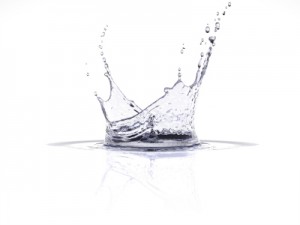That simple statement has to appeal to just about everyone. Why? Everyone likes the earth, right? Although not everyone believes that climate change exists or that the earth needs saving, everyone likes to save money and by saving money they can help save the earth. How? By reducing their utility bills. Think about it you can save money AND you can save the earth without even thinking about it. If you actually saved the money in the bank, mutual fund, etc…instead of buying stuff (reducing consumerism) you could deepen your earth savings and benefit yourself in the long term. Wow. Cool.
When my kids go to the mall with my money the sky is the limit but when they go with their own money they carefully shop checking the price of these jeans over those and that caramel mochiata over the next. We all do that. We all try to get the best price for the most stuff. We don’t normally do that with utilities. Why? Because often price shopping isn’t available. The sewer authority and the water company operate on a set rate structure. Even the deregulated electric companies offer limited rates and have maximum flexibility in changing those rates.
If we can’t price shop what can we do? We can volume shop. We can change the way we consume so that the volume of demand changes by what…oh no that word is so 70’s, so Carter, so out of it…by conserving energy and water.
Who cares about water? Electricity is one thing but water? Who cares about water? It rains all the time doesn’t it? Well, no, it doesn’t, not everywhere and where it does our stormwater systems are designed to whisk that nasty water away to the streams, rivers and oceans rather than recharging our aquifers. What do we get? Dry wells, eroded stream beds, reduced flora and fauna, higher costs to import water, water quality issues from pollution and from increased additives to make the water suitable for us to drink….egad, who knew. What to do?
We often think of our car’s operation in terms of miles per gallon but I haven’t met anyone who measures their house in operating units per hour. Why not? My guess is because we have no real way of measuring what we consume. We get our monthly bill, open it with dread, get upset at the amount, look at overall consumption and then pay the bill. We could go out and look at the meter but what the heck does that tell you? Huge numbers and a wheel that goes around fast or slow depending upon what is going on inside. Also the bills speak in a language all their own: kWh, volts, amps, Ccf…
To understand how our houses operate, how we are choosing to spend our money and how to conserve, we need to measure consumption of our utlities on a real time basis. Right now we can buy a dashboard for our houses that is very similar to the Prius gas consumption dashboard BUT wow is it expensive. The marketplace will fix that soon.
In the meantime what to do? We can get involved with our houses.
We are children of technology, we grew up in an automated world where stuff comes to us immediately: flip the switch and on comes the light, turn the spigot and out comes the water, flush the toilet and away goes the water. But from where and where to? Do we care? We haven’t cared but we should because there are real costs out there that affect us each and every day in the products we buy, the utility bills we pay and in the quality of the environment in which we live. With this technology has also come complacency – the house operates and we don’t think about it. Questions we should start to ask include: Where does our electricity come from? How is it generated? What impact does that generation have on our environment and what are its long term costs?

• What about the water we drink – where does it come from? How far does it travel to get to the tap? What is the quality of the water? What is its relative scarcity?
• What about waste water from our houses – where does it go? How is it treated? What happens to it after it is treated? What impact does that after treatment have on our bills and on our environment?
Lots and lots of people don’t know the answers to these questions. To make good actionable decisions about how we live and how our communities thrive we should know the answers. As a first step in understanding how your house operates, take some time to develop a utility fact sheet for yourself in my GreenBeams Save-A-Lot Chart.
